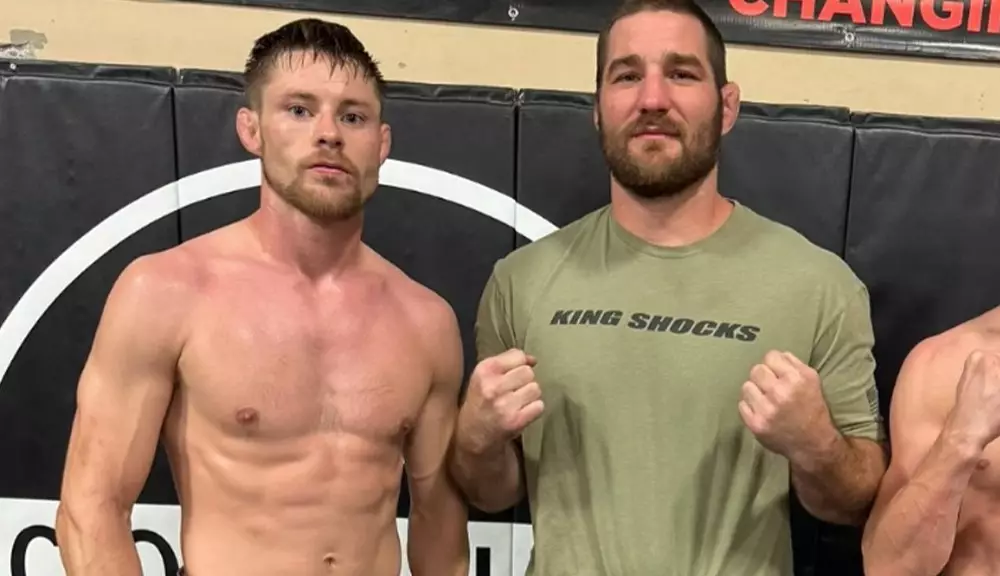The world of mixed martial arts (MMA) is no stranger to controversy, and the recent remarks made by UFC featherweight Bryce Mitchell have sparked considerable debate. As the sport evolves, fighters become not just athletes, but also public figures whose words carry weight. Sean Strickland, a fellow UFC fighter known for his candid opinions, weighed in on the controversy during a media day for his upcoming title fight against Dricus Du Plessis. Strickland’s remarks shed light on the implications of Mitchell’s statements and the broader context of radicalization in society.
Mitchell’s recent comments on his podcast, where he claimed that Adolf Hitler was “a good guy” and someone he’d enjoy fishing with, ignited immediate backlash. The absurdity of such statements caught the attention of UFC CEO Dana White, who didn’t hesitate to condemn Mitchell, labeling him as “one of the dumbest humans.” Public opinion swiftly turned against Mitchell, with many questioning the authenticity of his subsequent apology.
Strickland’s take on the incident is particularly noteworthy, as he emphasized that while he does not condone Mitchell’s views, he believes Mitchell is not inherently malicious. Instead, he described Mitchell as someone who has become influenced by extreme viewpoints—an observation that raises critical questions about the susceptibility of public figures to radicalized beliefs.
In discussing Mitchell’s situation, Strickland uses the term “radicalized,” a heavy word that implies a deep-seated transformation of a person’s beliefs. This concept reflects a significant societal issue, as individuals often get entrapped in information bubbles that reinforce extreme ideologies. According to Strickland, Mitchell’s lack of education and exposure to varied perspectives led him down what he described as a “rabbit hole.” Through this lens, Strickland calls attention to the broader implications of the controversy, suggesting that it is essential to understand why someone might adopt such radical beliefs.
Strickland did not hesitate to criticize Mitchell directly, emphasizing the gravity of his statements while also advocating for an understanding of the individual behind them. He articulated that similar incidents could occur to anyone who finds themselves navigating ideologies without a solid grounding in reality. However, he also stressed the importance of taking responsibility. Strickland expressed disappointment in Mitchell’s decision to apologize, viewing it as a retreat rather than an acknowledgment of the damaging effects of his comments.
This calls into question the nature of public apologies in the world of sports. Are they genuine reflections of remorse, or merely strategies to mitigate negative fallout? Strickland’s perspective suggests that confronting one’s mistakes head-on is more valuable than offering surface-level contrition.
As athletes continue to occupy prominent positions within society, the lines between sports and social commentary blur. The Bryce Mitchell incident serves as a potent reminder of the responsibility fighters hold as influencers. Strickland’s comments on the matter encourage a deeper understanding of radicalization, emphasize the need for accountability, and highlight the importance of informed dialogue. As the MMA community grapples with this controversy, it becomes clear that the conversation extends far beyond the cage, challenging all involved to reflect on their words and the impact they may have.

